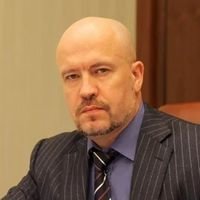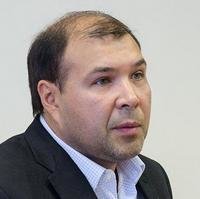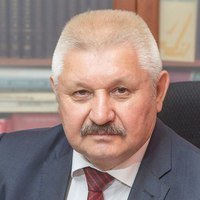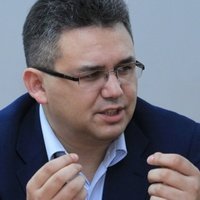''The security forces have the feeling that they are chiefs in the country''
Experts about the verdict to Nikita Belykh: ''It is a signal for everyone. And it has long been known''
The Presnensky district court of Moscow delivered a verdict on the criminal case of the ex-governor of the Kirov Oblast, Nikita Belykh, for a bribe in especially large size. He was sentenced to eight years in strict regime colony and ordered to pay a fine of over 48 million rubles ($855,000) — the sentence is unusually harsh and demonstrative for the Russian political system. The opinions of experts interviewed by Realnoe Vremya boil down to that the court's decision is a ''loud sound of the gong'', not a warning call.
''He was a political governor, Chubais lobbied him''
Igor Ryabov, the head of the expert group Crimean Project, believes that the court acted according to the letter of the law: the prosecution contains the facts of excessive spending of Nikita Belykh — it was clear that he lived the high live.
 ''This bribe that the defence presents as a one-off event was clearly not such. That is why the sentence is quite tough, in the spirit of the fight against corruption in the highest regional echelons of power. At the same time, for many years Belykh had been presented as a kind of hero — young, liberal and so on. It is to what all these people generally strive for. He was a political governor, Chubais lobbied him,'' Ryabov comments.
''This bribe that the defence presents as a one-off event was clearly not such. That is why the sentence is quite tough, in the spirit of the fight against corruption in the highest regional echelons of power. At the same time, for many years Belykh had been presented as a kind of hero — young, liberal and so on. It is to what all these people generally strive for. He was a political governor, Chubais lobbied him,'' Ryabov comments.
The expert has questions about the physical condition of the sentenced, because of which a significant part of commentators in the Network considers Belykh as a victim. ''The court should have considered the mitigating circumstances, all of these circumstances can be clarified in the appeal, and to act with justice,'' Igor Anatolyevich said. ''On the one hand, it is an offense, on the other — personal tragedy. I just want to draw your attention to this — there are practices and norms that need to be taken into account when making the final verdict.''
As for the question what the authorities wanted to say with such a sentence, Igor Ryabov believes it to be ''a signal to everyone and always, it is known. Belykh had enough of these signals not to take bribes.''
No one is untouchable
Andrey Kolyadin, a member of the board of the Russian Association of Political Consultants, decided not to analyze how well the investigation was conducted and whether Belykh was guilty or not.
 ''Nevertheless, as for the signal that was given to the elite, it is that now no one is untouchable,'' the analyst says. ''That today even minor officials, mayors, governors and ministers can find themselves under the burden of liability in the event of occurrence of relevant circumstances. On this basis, people should be very attentive to what they are doing. This should concern not only their relationships with financial resources, but also their contacts and ties. Because any official can receive a modest gift in a restaurant, to take it to see what's in there. But among the chocolate sets or bottles of wine there can lie a tight package of money in both Russian and foreign currency.''
''Nevertheless, as for the signal that was given to the elite, it is that now no one is untouchable,'' the analyst says. ''That today even minor officials, mayors, governors and ministers can find themselves under the burden of liability in the event of occurrence of relevant circumstances. On this basis, people should be very attentive to what they are doing. This should concern not only their relationships with financial resources, but also their contacts and ties. Because any official can receive a modest gift in a restaurant, to take it to see what's in there. But among the chocolate sets or bottles of wine there can lie a tight package of money in both Russian and foreign currency.''
According to the expert, today officials should behave much more accurately, in particular, not to participate in any doubtful operations and meetings.
''Actually, in the officials' world there are tectonic shifts and changes of rules of the work taking place,'' Andrey Kolyadin believes. ''If earlier officials of different levels could operate free money, create certain funds and so on, which, on the one hand, could finance some regional or city programmes, and on the other, be a certain cash desk for personal use, but today, I think, it is necessary to be careful with it.''
Among other things, the sentence to Belykh reduces the attractiveness of public service because earlier ''they went there not only to serve, but also to enrich. Surprises await those who will go in power anyway to solve their own problems,'' the expert notes.
 Ilya Grashchenkov, the head of the Centre for development of regional policy, notes that the sentence to Nikita Belykh is the signal exclusively to the governor's corps that any corruption actions, despite of what and under what scheme they were made, today will be punished as harshly as possible. That is why the sentence is so tough. It is obvious that Belykh has become a victim because he was not part of any group associated with the security forces.
Ilya Grashchenkov, the head of the Centre for development of regional policy, notes that the sentence to Nikita Belykh is the signal exclusively to the governor's corps that any corruption actions, despite of what and under what scheme they were made, today will be punished as harshly as possible. That is why the sentence is so tough. It is obvious that Belykh has become a victim because he was not part of any group associated with the security forces.
''He is from the liberal group, so he was a relatively easy target. We see that today it does not matter. There is a need to prove that the government is fighting against corruption, and Belykh becomes a victim in this fight,'' Grashchenkov considers.
The situation in the country favours
Konstantin Kalachev, the head of Political Expert Group, is not sure that the sentence should be considered as a hundred percent sign or signal. It is just obvious that the judges are not in an airless space, they understand the needs of both society and the authorities, and in the case with Belykh there were no mitigating circumstances.
 The affiliation to liberal views did not play the role of a lifeline. I thought that it would be considered a term from five to eight years, but they gave eight. It is necessary to show a system fight against corruption, that liberals also participate in corruption crimes, that everyone is equal before the law, that punishment is inevitable. Many things converged here. After Ulyukayev it was clear that nothing would help. The verdict is, of course, tough. Belykh did not kill anyone, in the end,'' said Konstantin Kalachev.
The affiliation to liberal views did not play the role of a lifeline. I thought that it would be considered a term from five to eight years, but they gave eight. It is necessary to show a system fight against corruption, that liberals also participate in corruption crimes, that everyone is equal before the law, that punishment is inevitable. Many things converged here. After Ulyukayev it was clear that nothing would help. The verdict is, of course, tough. Belykh did not kill anyone, in the end,'' said Konstantin Kalachev.
Dmitry Russkikh, a deputy of the Legislative Assembly of Kirov Oblast of last convocations, now a businessman, was present at the announcement of the sentence personally. He also believes that there is no special signs here:
''There have been so much different signals in the recent time, but the real picture does not change. If to consider according to the questions that it is impossible to steal, plunder the budget and municipal property, then I will tell that Nikita Yuryevich in Kirov Oblast was not in the first ranks.''
The evidentiary base presented in the court caused questions of Russkikh. In his opinion, it ''left much to be desired.'' At the same time, one cannot say that the ex-governor is a holy man and pillar of innocence.
 ''It was clear that for him personally the rendered decision was a big tragedy,'' the expert shared the observations. ''Besides, he is a sick man. Someone said that he ''is playing'' his illness, but I saw him and I am sure that it is impossible to play. His state of health did not affect the court's decision. In general, it is, of course, a very tough sentence. I am humanly very sorry for him, he was not the worst governor. I can say that he is one of the best by energy. But Belykh himself is partly to blame for the incident. When choosing partners and friends he did not assess all the risks.''
''It was clear that for him personally the rendered decision was a big tragedy,'' the expert shared the observations. ''Besides, he is a sick man. Someone said that he ''is playing'' his illness, but I saw him and I am sure that it is impossible to play. His state of health did not affect the court's decision. In general, it is, of course, a very tough sentence. I am humanly very sorry for him, he was not the worst governor. I can say that he is one of the best by energy. But Belykh himself is partly to blame for the incident. When choosing partners and friends he did not assess all the risks.''
''His investment projects are thievish''
Another ''witness'' of the events — Sergey Mamaev, the head of the Communist Party in the Legislative Assembly of Kirov Oblast, considers the sentence to be a normal term, not requiring any ''easing''.
''It is a signal to all executive power. Those who idealizes it – they themselves put it at risk. Corruption is a threat to the state and society. The article of the Criminal Code for bribe-taking involves up to 15 years of imprisonment, his term is medium,'' Mamaev said.
 According to the expert, he ''personally warned the ex-governor, showed him analytical researches, but he didn't react.'' Mamaev spoke publicly on corruption issues, but still there was no response. ''Twelve investment projects that he made are thievish. Personally, I'm sorry for Belykh as a person, he's sick, but my conscience is clear — I warned him. For example, he built a Hilton hotel in the city centre, on the shore of a pond, in the recreational area. He bought this site for 9,000 rubles! What's he talking about? This is a small striking example. He acted flaky concerning many issues,'' Sergey Mamaev emotionally commented.
According to the expert, he ''personally warned the ex-governor, showed him analytical researches, but he didn't react.'' Mamaev spoke publicly on corruption issues, but still there was no response. ''Twelve investment projects that he made are thievish. Personally, I'm sorry for Belykh as a person, he's sick, but my conscience is clear — I warned him. For example, he built a Hilton hotel in the city centre, on the shore of a pond, in the recreational area. He bought this site for 9,000 rubles! What's he talking about? This is a small striking example. He acted flaky concerning many issues,'' Sergey Mamaev emotionally commented.
Abbas Gallyamov, a political scientist, noted that given the state of health of Belykh, the sentence is really very tough. Nevertheless, the authorities did not intend to send a signal to anyone by his case.
 ''Realizing that corruption is one of the important claims of the society to the authorities, the Kremlin gave a command to the security forces to begin cleaning up the environment of regional bureaucracy. They got down to business as they can: compensating the lack of professionalism by toughness on the verge of violence,'' says Gallyamov. ''The security forces have the feeling that they are chiefs in the country, so they do not really care about people and public opinion.
''Realizing that corruption is one of the important claims of the society to the authorities, the Kremlin gave a command to the security forces to begin cleaning up the environment of regional bureaucracy. They got down to business as they can: compensating the lack of professionalism by toughness on the verge of violence,'' says Gallyamov. ''The security forces have the feeling that they are chiefs in the country, so they do not really care about people and public opinion.